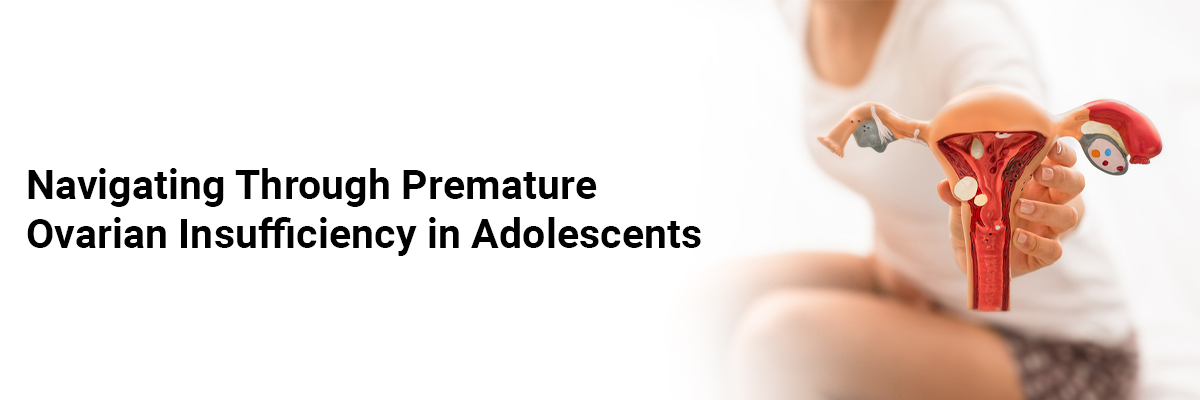
Navigating through premature ovarian insufficiency in adolescents
Premature ovarian insufficiency (POI)/Premature ovarian failure (POF)/Early menopause/Premature menopause refers to the termination of ovarian function in women less than 40 years of age. It comprises 1% of infertility cases in females. POI features menstrual disturbance (amenorrhoea or oligomenorrhoea) with elevated follicle-stimulating hormone (FSH) levels (>25 IU/L) and reduced estradiol (< 10pg/ml). POI has a heterogeneous etiology. However, the cause remains unknown in most patients. Various aetiologies may include genetic abnormalities, metabolic disorders, autoimmunity, iatrogenic, infection, and environmental factors.
Adolescent girls infrequently suffer from ovarian insufficiency and, if present, may be due to chromosomal abnormalities, autoimmune factors, or post-cancer treatment. Identifying POI in teens who present with amenorrhoea or oligomenorrhoea will help provide timely and appropriate endocrine, gynecologic, and reproductive care and counseling. Early diagnosis of POI will help individualize the therapy and increase the possibility of fertility preservation at the stage when oocytes are still available in the ovarian follicles.
Sharma M, Sihag K, Halder A, et al. Premature Ovarian Insufficiency In Adolescents. Indian obstetrics and gynecology. 2023;13(3)














Please login to comment on this article